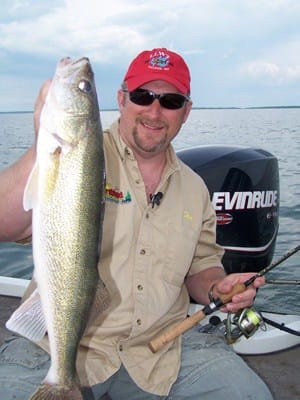
In the next few weeks, lots of anglers are going to take to the water in search of a tug on their line. And in those next few weeks, lots of fish are going to be caught. When we catch a fish, a decision needs to be made: Am I going to keep this fish? For some folks, there is no decision. They are going to release the fish. There are lots of anglers who go fishing because they just enjoy the thrill of the catch. That’s great!
For other folks, there is also no decision. They are going to keep the fish. Fish are good to eat. If I can have fun fishing and take a few home for the supper table, I will. Nothing wrong with that either.
But there are lots of anglers in the middle. They go fishing mostly just to go fishing, but every now and then they want to take a couple home. If you’re one of those anglers, it’s really important that you consider the fish you take home. Some fish are better for the table, others are best put back to catch again next time.
Catch and release is a concept that has caught on pretty good across the Midwest. In some areas, catch and release is voluntary, in others it’s mandatory. For the most part, in the areas where catch and release is mandatory, or at least mandatory for fish or certain species or certain sizes, fishing is far better.
In the spring, crappie and bluegill action can be pretty good in some bodies of water. Over-harvest is a real possibility, especially in areas that have no limits on these species. It used to be thought that if you wanted to keep fish, panfish were the species to keep. It was thought that keeping them in good numbers would prevent the population from stunting. It is now apparent in many areas that over-harvest prevents them from reaching a decent size. It’s ok to keep a few panfish for a fish supper, but it’s good to release them also.
If you’re after walleyes, you really need to pay attention to the regulations. Many lakes have gone to a slot limit. In most slot-lakes, all walleyes between, for instance, seventeen and twenty five inches, must be released. You can keep a few walleyes under seventeen inches, and one over a certain size. Lakes with slot limits like this are usually very good lakes for fishing. On the right day, you’ll catch a bunch of fish and be able to keep a few. That’s a win for most anglers.
Some fish, for the most part, should be released. In most situations, largemouth and smallmouth bass should be put back. Same is true with muskies, and also with northern pike over five or six pounds, and walleyes over four pounds. There are exceptions, but for the most part, these are good rules of thumb.
There is certainly nothing wrong with keeping a few fish, but when we take too many for too long from a body of water, we’re harming that body of water. Next time you go fishing, keep the fish population in mind before you put too many on your stringe
Check out other conservation issues USA members are talking about:
CLICK HERE
Watch this video to learn how to save a badly hooked fish:
CLICK HERE
Other USA articles you might like:
Conservation in a Time of Austerity
Yellowstone’s World Class Trout Fishing
Shoot Jigs for More Crappie







